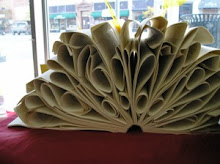
In reviewing Merchants of Culture: The Publishing Business in the Twenty-First Century by John B. Thompson, Jason Epstein, long-time editor at Random House, co-founder of The New York Review and Library of America has penned a thoughtful piece in The New York Review of Books on the publishing industry, and by implication book selling in the 21st century. Fifty years ago, publishers relied, according to Epstein, on independent book shops with a knowledgeable and well-read staff to sell their back list titles. The sale of these titles provided the financial stability to those “Merchants of Culture”. Publishing decisions were made with this back list in mind.
With the corporatization of the publishing industry, books increasingly became viewed, according to Epstein, as commodities, ushering the era of the “big book” or bestseller. This brought a shift in publishing decisions and distribution as retail chains became the sounding board as well as the outlet for publishers accountable to shareholders. What happens when this relationship between chains and becomes unstable?
As the chains struggle to adapt to an increasingly fickle best-seller market—who is the next Stieg Larssen or Stephanie Meyer—publishers are left with unpaid invoices and returned inventory. The absence of a well-read staff means that if books did not sell themselves, they did not sell. It is readily apparent that this publishing model was built on a foundation of sand.
Chapter One as an independent book shop strives to connect readers with books—particularly those tit
 les not backed by huge marketing budgets. The books that frequent the bestseller lists—often camped there for long periods—are ubiquitous and likely known by the reading public. Available from grocery stores to gas stations, it is hard not to see these as commodities.
les not backed by huge marketing budgets. The books that frequent the bestseller lists—often camped there for long periods—are ubiquitous and likely known by the reading public. Available from grocery stores to gas stations, it is hard not to see these as commodities.For those who seek out the unique book store to converse about books, however, they will find on our shelves Vasily Grossman, Tadeusz Rozewicz and Amos Oz. They will discover that Kate Morton’s The Forgotten Garden has been put into nearly 100 hands due to Mara Lynn’s enthusiastic rev
 iew. They will learn about the origins of The Crying Tree by Naseem Rakha, and about that other book by Antoine Saint-Exupery—Wind, Sand and Stars.
iew. They will learn about the origins of The Crying Tree by Naseem Rakha, and about that other book by Antoine Saint-Exupery—Wind, Sand and Stars.As buyers for an independent book store, Mara and I are able to be flexible, but also adventurous. When a book appears in a front list catalog, we
 can buy for one person for whom we know that book is perfect, or take a chance on a title which helps define Chapter One as a true independent. No algorithm, no matter how sophisticated, can do that. Our customers and our knowledge of books outside the bestseller lists are where we excel.
can buy for one person for whom we know that book is perfect, or take a chance on a title which helps define Chapter One as a true independent. No algorithm, no matter how sophisticated, can do that. Our customers and our knowledge of books outside the bestseller lists are where we excel.

No comments:
Post a Comment